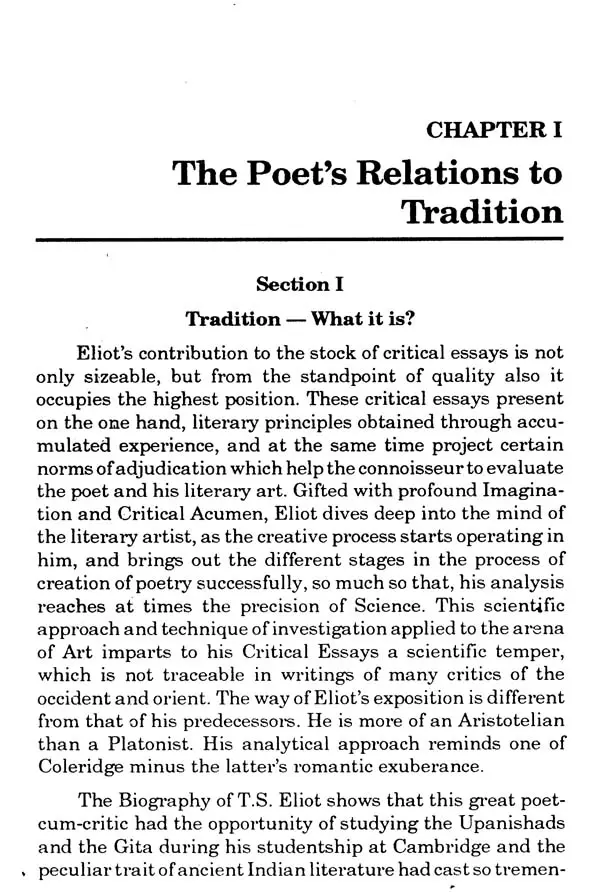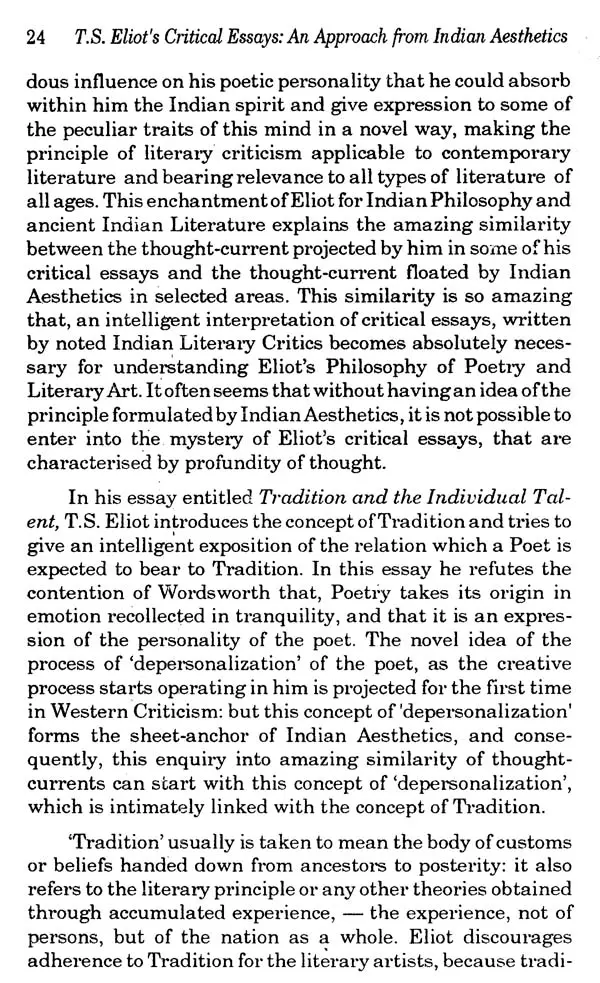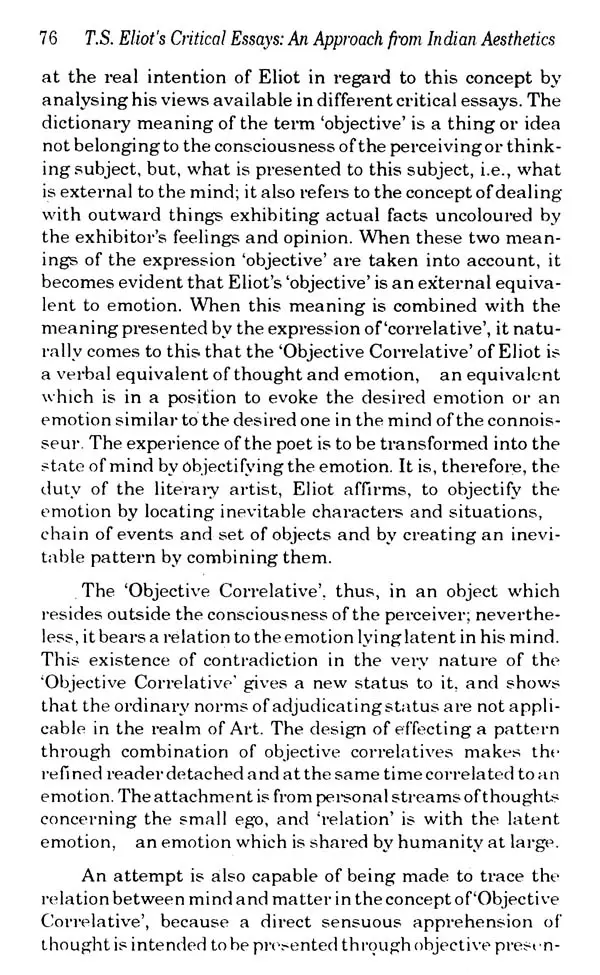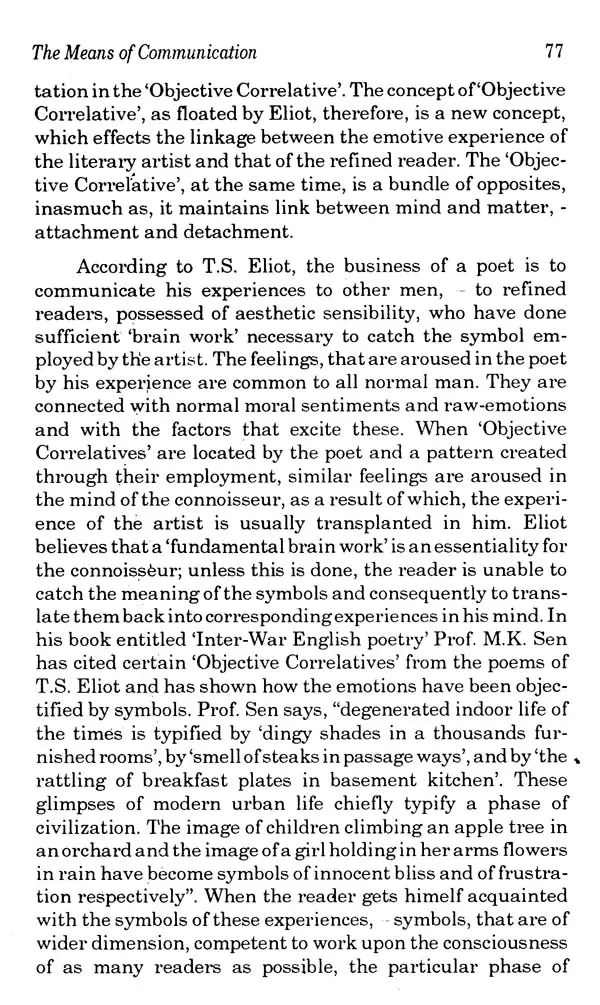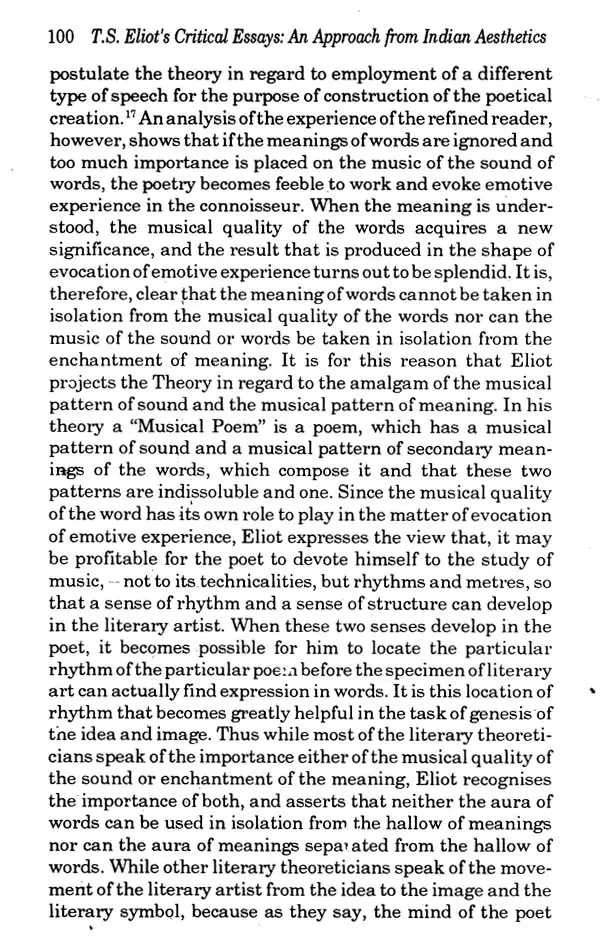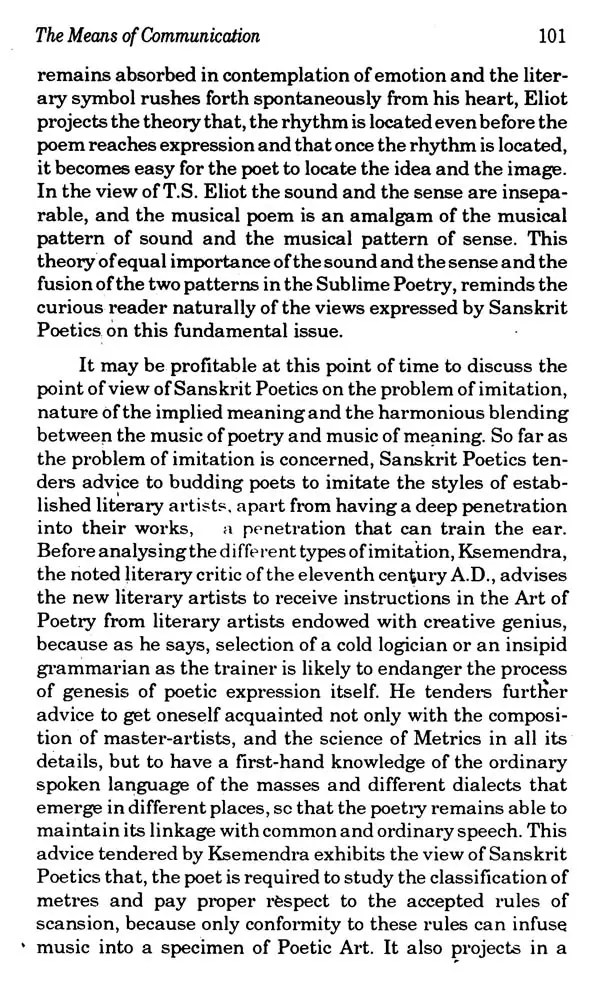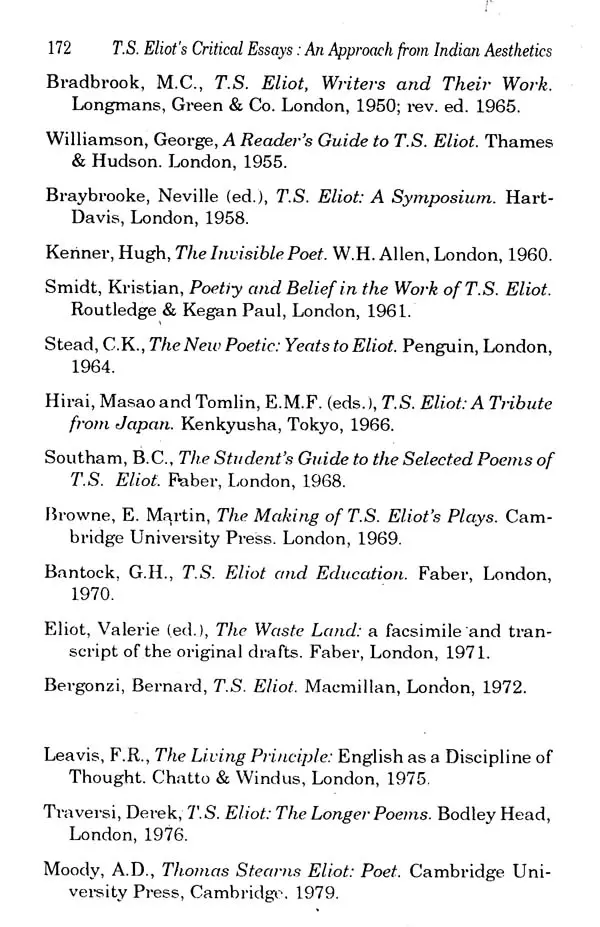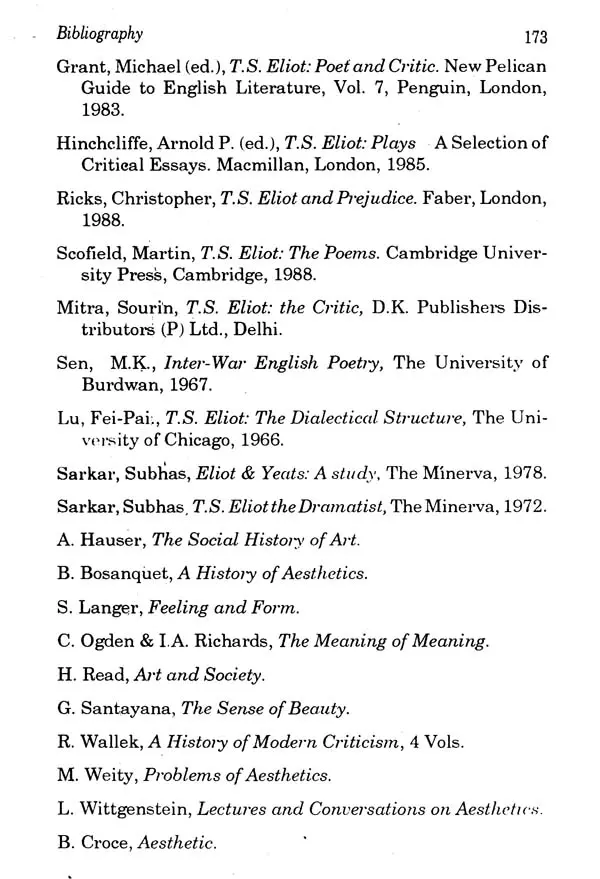
T.S. Eliot's Critical Essays : An Approach from Indian Aesthetics
Book Specification
| Item Code: | UAG253 |
| Author: | Parthasarathi Mukhopadhyay |
| Publisher: | Sharada Publishing House, Delhi |
| Language: | English |
| Edition: | 1993 |
| ISBN: | 8185616140 |
| Pages: | 174 |
| Cover: | HARDCOVER |
| Other Details | 9.00 X 6.00 inch |
| Weight | 330 gm |
Book Description
. Professor Dr Jagannath Chakravorty, one of the most profound exponents of comparative criticism of the modern times, suggested to me the subject and explained its tremendous possibilities. Subsequently, he was pleased to agree to supervise the research project and guide me for Ph.D. degree of Jadavpur University. Unfortunately, Professor Chakravorty is no more to see the results of the research carried out under his supervision being published in the form of a book and to inspire me to undertake further projects. I happen to be the last research scholar to be guided by him, - last member to appear in 'the family of learning' (vidyavamsa) created by this great scholar, critic and literary artist. I offer my salutations soaked with devotion to Professor Chakravorty and seek his blessings in all my future ventures.
I had also the opportunity of discussing the contents of the thesis with Professor Dr Subhas Sarkar, Professor of English, Rabindra Bharati University, Calcutta, who happened to be one of the adjudicators and was pleased to conduct my Viva along with my supervisor. I am grateful of the very valuable suggestions offered by Professor Sarkar, a great exponent of Eliot's theory and Philosophy in regard to my future projects. The inspiration given by him is really tremendous and is likely to help me in carrying out new investigation in the field of practical application of the literary theories projected by T.S. Eliot to all specimens of poetic art including his own creations. This suggestion has been taken note of, and depending on the blessings of the Divine Mother and the spark of inspiration ignited by the learned connoisseur of T.S. Eliot, a start is contemplated to be given to the new scheme immediately after the publication of this book. I had the privilege of going through some of the excerpts from the reports submitted by Dr Haydn Moore Williams on the thesis. The recommendations and remarks of Dr Williams have proved to me to be a source of a great strength, particularly because of the fact that Dr Williams happens to be a representative of both Western and Indian Cultures, - of the Western by his birth and of the Indian by his training and constant application to Indian texts and scriptures including the Gita, the Upanishads, the Vedas and the Puranas. The comments made by this learned scholar have been taken care of in the book. At this material moment, when the book is going to see the light of the day, I offer my profound respect to both Professor Dr Subhash Sarkar and Dr H.M. Williams for the kind words of encouragement, which they had been pleased to record in their reports.
Book's Contents and Sample Pages


